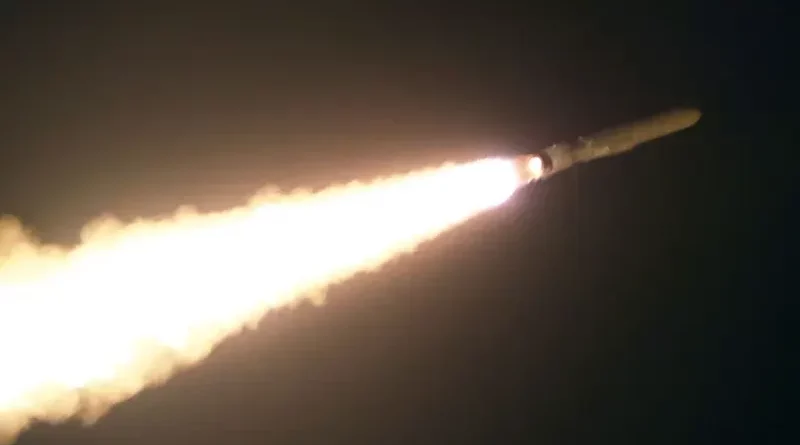North Korea tests strategic cruise missiles Pulhwasal-3-31: KCNA
North Korea tested its new strategic cruise missiles “Pulhwasal-3-31” for the first time aimed at strengthening weapon system capabilities, reported Korean Central News Agency (KCNA), a day after South Korean military revealed test-fires of multiple cruise missiles towards the Yellow Sea.
According to KCNA, the launch did not pose any threat to the safety of its neighboring countries and had nothing to do with regional security.
The report further stated that the “test-fire is a process of constant updating of the weapon system and a regular and obligatory activity,” of the Missile General Bureau and its affiliated defense science institutes.
The multiple launches come days after Kim Jong-un’s forces fired a solid-fuel intermediate-range ballistic missile carrying a hypersonic warhead into the East Sea, marking the first of this year.
North Korean media KCNA reported last week that Pyongyang had tested an “underwater nuclear weapon system” in response to joint naval exercises by the US, South Korea, and Japan.
The drills were “seriously threatening the security” of the North, so in response, Pyongyang conducted an important test of its underwater nuclear weapon system Haeil-5-23 under development in the East Sea of Korea,” the KCNA reported.
Early last year, Pyongyang carried out multiple tests of a purported underwater nuclear attack drone claiming that it could unleash a radioactive tsunami.
Recent months have seen a sharp deterioration in long-tense ties between the two Koreas, with both sides jettisoning key tension-reducing agreements, ramping up frontier security, and conducting live-fire drills along the border.
North Korean leader Kim Jong Un last week declared the South his country’s principal enemy, jettisoned agencies dedicated to reunification and outreach and threatened war over even 0.001 mm of territorial infringement.
Hours after the missiles were fired by Pyongyang Wednesday, Seoul’s defence minister said North Korea would face the end of its regime if it ever waged war.
“If the Kim Jong Un regime makes the worst choice to start a war, you must become the invisible force that protects South Korea and… eliminate the enemy’s leadership in the shortest possible time and end their regime,” Shin Won-sik said.
Recent months have seen a sharp deterioration in ties between the two Koreas, with both sides jettisoning key tension-reducing agreements, ramping up frontier security, and conducting live-fire drills along the border.
The North Korean leader Kim also said Pyongyang would not recognise the two countries’ de facto maritime border, the Northern Limit Line, and called for constitutional changes allowing the North to “occupy” Seoul in war, the KCNA said.

